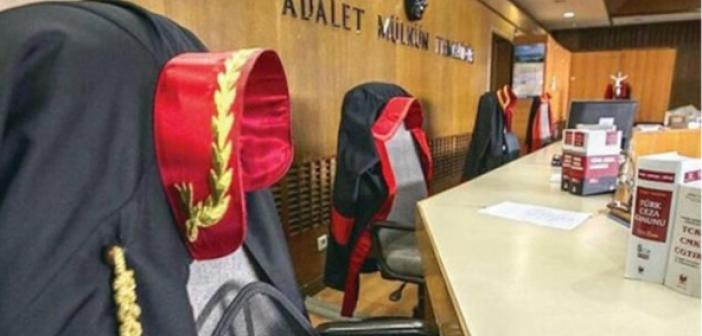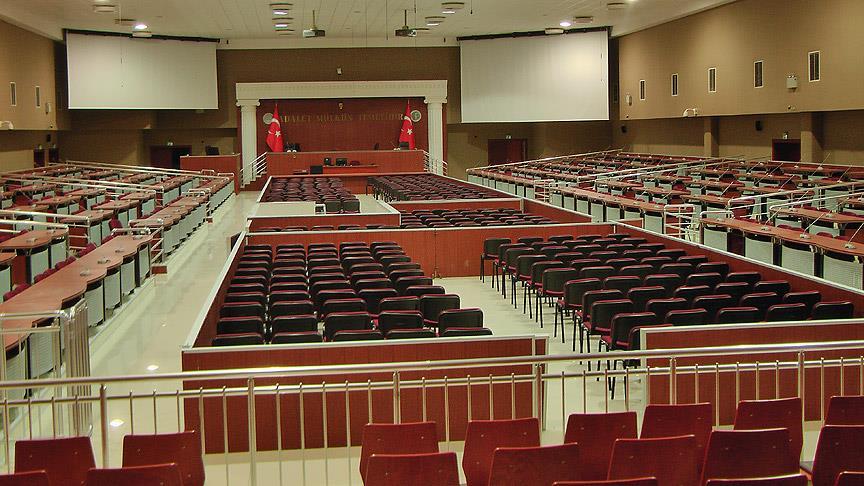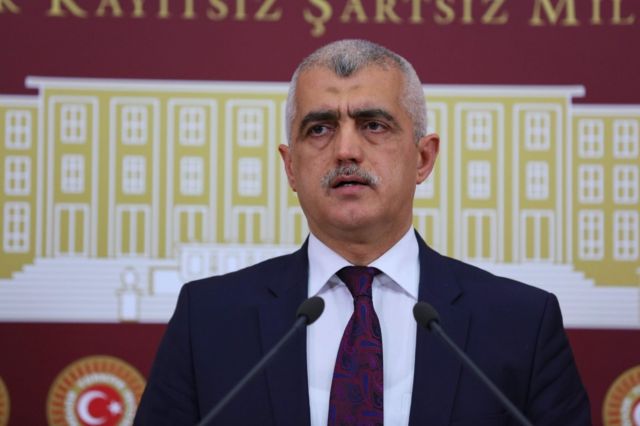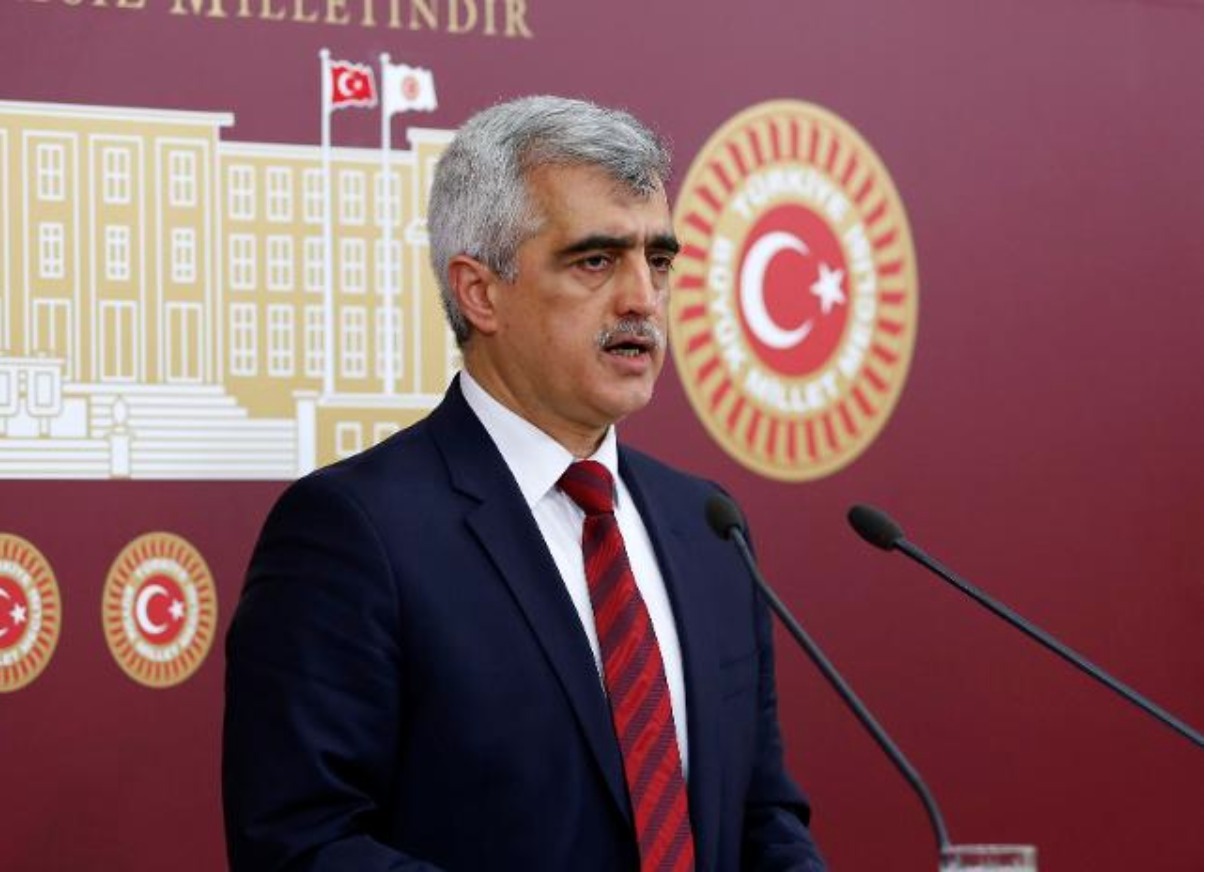- The basic provisions regarding the “formation of the court in compliance with the law” are stated in the Articles 36, 37 and 142 of the Turkish Constitution and Article 6 of the ECHR. The provisions are the following;
In Article 36 of the Turkish Constitution titled “Freedom to claim rights”:
“Everyone has the right of litigation either as plaintiff or defendant and the right to a fair trial before the courts through legitimate means and procedures.”
In Article 37 titled “Principle of natural judge”:
“No one may be tried by any judicial authority other than the legally designated court. Extraordinary tribunals with jurisdiction that would in effect remove a person from the jurisdiction of his legally designated court shall not be established.”
In the specific case in question about Adnan Oktar and his friends, the formation / constitution of the court (more precisely, the panel of judges) that heard the trial is uncompliant to these provisions:
- The indictment was issued on 12.07.2019 and was accepted by Istanbul High Criminal Court No. 30 on 19.07.2019. Instead of the Panel of Judges that decided to accept the indictment, a different panel “who was assigned to see only two cases” was formed. Galip Mehmet Perk, the presiding judge of the new panel, was previously appointed by the High Council of Judges and Prosecutors (CJP) as the presiding judge of Istanbul High Criminal Court No. 16 with the Judicial Decree no 785 dated 10.07.2019. Only 19 days later, with a new decree issued by CJP on 29.07.2019 numbered 858, it was decided that Istanbul High Criminal Court No. 30 would operate in two panels, that the first panel would handle the case files numbered 2019/74 and 2019/313 (the case of Adnan Oktar and his friends), and the other panel would handle all other case files and procedures. With the same decree, Galip Mehmet Perk was made the presiding judge of the first panel and Talip Ergen, who was previously a member judge in Istanbul High Criminal Court No. 27, and Ahmet Tarık Çiftçioğlu, who was previously a member judge in Istanbul High Criminal Court No. 30, were appointed as the member judges in the newly formed panel. On 17.09.2019, the trials for the case began and a final decision was reached on 11.01.2021. Immediately after this final decision, CJP abolished the first panel with a decision numbered 2021/48 on 19.01.2021 and assigned the panel members to other courts. This fact raises the doubt that the panel of judges was created exclusively for this case.
- On 19.07.2019, the Istanbul High Criminal Court No. 30 decided to accept the indictment and issued the preliminary proceedings report. The judges who signed this decision are:
Presiding Judge – Mahmut Başbuğ (125412)
Member – A. Tarık Çiftçioğlu
Member – Hasibe Doğan (214930)
- On 29.07.2019, a decree numbered 858 (very important for the casefile) was published by the Council of Judges and Prosecutors (CJP). Based on this decree, Mr. Mahmut Başbuğ, who was previously a member of the court and was appointed as the Presiding Judge of the Court, was removed from the specific case and assigned to the 2nd Panel of Judges formed within the court.
Again, Ms. Hasibe Doğan, who has signed the decision to accept the indictment, was likewise assigned to the (newly formed) 2nd panel of judges.
Thus, both the presiding judge of the court and a judge assigned naturally to the case file were removed from the case that was actually assigned to them, even though they had started their work in the file.
- This decree of CJP dated 29.07.2019 and numbered 858 (besides its violating the principle of the right to a legal / natural judge) has been a decision in which this violation was clearly stated and admitted. Because it is clearly stated in the decree that it is decided:
“For the Istanbul High Criminal Court No. 30 to work in 2 panel of judges, for the files numbered 2019/74 and 2019/313 E. and that may come in connection with these files of the High Criminal Court No. 30 to be proceeded by the 1st Panel of Judges; and for all other files and works by the 2nd Panel of Judges…”
In this decree, judges were appointed by clearly mentioning the number of a certain case file, the judges on duty were removed from the file, and others were appointed in their place.
- Due to the fact that the second file whose number is mentioned in the decision of the CJP, i.e. 2019/74 E. (Osman Kavala – Gezi Case) is also a file closely followed by the public, this particular appointment attracted the attention of the press, and news were published announcing that appointments were made for the purpose of unlawful intervention in the two casefiles in question.
- Immediately after the verdict was given about Adnan Oktar case on 11.01.2021, the two panels of Istanbul High Criminal Court No. 30 were united by a new decree of CJP dated 19.01.2021 and numbered 48, and the members of the 1st panel who heard the trial in question were assigned to other courts. This shows once again that the set-up of a second panel in the court was purely for the trial of Adnan Oktar case and CJP had made an assignment connected with and restricted to a specific group.
- To summarize, the panel of judges to hear the case was formed particularly for this specific case by specifying the number of the case file after,
- The supposed dates on which the alleged crimes were committed,
- The preparation of the indictment,
- The acceptance of the indictment,
- The preliminary proceedings report,
And before,
- Hearings (the trial) actually started.
And was dissolved right after the verdict.
- According to the Turkish Constitutional Court, the guarantee of a natural judge is an indispensable condition of a state of law. It prevents the formation of judicial authorities after the occurrence of the conflict and prevents the appointment of judges based on the parties of the specific cases (Constitutional Court Decision numbered E. 2012/146, K. 2013/93, dated 17/7/2013). The decision says that if the authorized court is determined afterwards, the principle of natural judge will have been followed only if it handles crimes that are perpetrated after the declaration that it has been authorized. In another decision, the Constitutional Court says that if a newly formed court or a judge newly appointed to a formerly created court sees conflicts that precede the date of creation or appointment, this will not be a violation of legal judge guarantee only if is not specific to a certain incident, person or community.
- ECHR holds that the phrase “established by law” covers not only the legal basis for the very existence of a “tribunal”, but also compliance by the tribunal with the particular rules that govern it. ECHR holds the opinion that the term “a tribunal established by law” in Article 6 § 1 envisages the whole organisational set-up of the courts, including not only the matters coming within the jurisdiction of a certain category of courts, but also the establishment of the individual courts and the determination of their local jurisdiction. (Sokurenko v. Strygun/Ukraine, Applications Nos: 29458/04 and 29465/04, 20/7/2006, §24; Leo Zand v. Austria, Application No. 7360/76, 12/10/1978).
- Venice Commission stated in its opinion regarding Turkey’s Constitutional changes in 2017 that CJP mostly lost its impartiality and independence, and that this would have negative implications for judicial independence, stating that the new composition of the CJP “would place the independence of the judiciary in serious jeopardy, because the CJP is the main self-governing body overseeing appointment, promotion, transfer, disciplining and dismissal of judges and public prosecutors. Getting control over this body thus means getting control over judges and public prosecutors.” (Opinion dated 13 March 2017, CDL-AD[2017]005, §119).
After this opinion, in some cases seen by ECHR (Selahattin Demirtaş/Turkey (BD), Appl.. No: 14305/17, 22/12/2020, §423-438; Kavala/Turkey, Appl.. No: 28749/18, 10/12/2019, §215-232), it was stated that the judiciary authorities could not act independently. For the first time, the Court reached decisions against Turkey stating that courts were used for political purposes and violated the 18th article of the Convention. Such decisions became consistent.
- Unlike the European system, there is no geographical guarantee in the judicial system of Turkey. For this reason, the principle of natural judge is not an obstacle for a judge to see another case by relocation after the date of the crime. However, the fact that a judge was appointed with a decree to see a case after the date of the crime and after the relevant investigation had been completed, that the court was made to work in two panels, the fact that the newly appointed judge was made the presiding judge for the current case and that he was immediately appointed to another court after the decision was reached is a strong sign of the violation of the legality of the court and of the principle of natural judge.
- This doubt is further justified by the reasoned decision of the court and the court’s approach throughout the trial. The group was declared a “criminal organization” since the beginning of the trial and the interrogation of the defendants was basically limited to discussions about being a member of this organization. In the reasoned decision issued by the court, the defense, arguments or objections of the defendants and their lawyers are not included in the parts where the evidence is evaluated and legal opinion is offered. The justification of the verdict is made based on the allegations and the evidence provided by the complainants against the defendants. In other words, defense arguments are completely ignored in the formation of the decree.
- Due to the aforementioned reasons there are strong indications of violation of the natural judge principle mentioned in the 6th article of ECHR as well as the 37th article of the Turkish Constitution.







